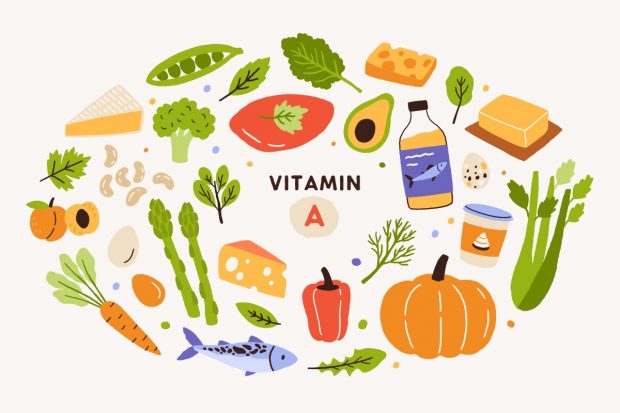
Yay! Spring is finally here. It’s the perfect time to head to the farmers market and pick up the superfood of all superfoods—carrots. And no, they’re not just good for keeping you spectacle-free! In this article, we’ll explore the top 5 benefits of carrots and why you should add them to your plate, daily. Let’s get to the root of the matter.
Get to the Root of Root Vegetables
Consider this—if your plate was a crown, think of carrots (and other root vegetables) as the most precious jewels. Not only are root veggies responsible for boosting your immune system, they also ward off certain cancers, reduce your risk of heart disease and help maintain a healthy weight.
Yet, less than 9 percent of American adults eat enough veggies. It’s time to add them to your plate. Whether you roast ‘em, bake ‘em or add ‘em to a soup, make sure to stock up on ‘em to get your daily veggie quota.
What’s up, Doc?
Carrots are crazy high in vitamin A—241% RDV, in fact—which is vital for healthy eyes. Not only that, they’re loaded with vitamin C, vitamin K, folate, iron and potassium, all of which boost your immunity to fight off the flu and other viruses. Shall we dig into even more benefits?
Benefit #1: Supports Weight Loss

Because carrots are low in calories and a good source of fiber, they help increase the feeling of fullness.
But if you’ve ever dieted, you might’ve heard differently. While many weight loss plans—think very low-carb diet plans—advise avoiding carrots due to simple carbs, you should actually avoid this false advertising.
The benefits of carrot consumption far outweigh the drawbacks. Due to the high water and fiber content, carrots help curb your appetite, while the natural sweetness is helpful when trying to reduce other sugars in your diet.
Benefit #2: Enhances Your Skin

Want beautiful, tanned skin? Studies indicate that eating a diet rich in carrots gives you a healthier glow to your skin. In fact, they’re known to bronze your skin more than the sun!
The high levels of carotenoids—antioxidants that give carrots their coloring—are responsible for a natural tan.
But don’t completely ditch the sun in favor of carrots alone. You still need sunshine to get your daily dose of vitamin D. Just use sun protection!
Benefit #3: Prevents Cancer

No need to add loads of crazy supplements to your diet to help prevent cancer. Carrots will actually do the trick.
According to research, the high levels of beta-carotene found in carrots protects cell membranes from oxidative stress and inhibits the growth of cancerous cells.
And while carrots are loaded with vitamin A, you’ll never need to worry about overdosing, like you might if you take high quantities of vitamin A supplements.
Fun fact: Carrots don’t actually contain vitamin A. But the high levels of beta-carotene convert to vitamin A. Luckily, our bodies are clever. They only convert as much vitamin A as needed, so you’ll never have to worry about toxic side effects.
Benefit #4: Fights Heart Disease

As you may know, exercise coupled with a healthy diet is the best way to fight heart disease. But what you may not know is that carrots play a particularly important role in preventing heart disease.
Research suggests a diet rich in deep orange fruits and vegetables, especially carrots, protects against coronary heart disease. Couple carrots with fish and leafy greens and you’ll additionally lower your risk of having a heart attack.
Benefit #5: Reduces Inflammation

When you think of carrots, does the color orange come to mind? Orange carrots are obviously the most popular, but you can also find red, yellow, purple and white varieties. Each contains different vitamins, minerals and nutrients, with purple carrots containing the most anthocyanin.
Anthocyanin is a carotenoid that functions as an antioxidant. It fights free radicals, which helps reduce inflammation in the body. Fighting inflammation is imperative, since chronic inflammation contributes to heart disease, alzheimer’s and arthritis.
Here’s a breakdown of the different antioxidants found in each type of carrot:
Orange carrots are highest in beta-carotene, which is converted by the liver to vitamin A.
Yellow carrots contain xanthophylls and lutein, which help develop healthy eyes.
Red carrots are highest in lycopene, which is associated with the reduced risk of macular degeneration.
White carrots are considered the least healthy of carrots, but they do contain photochemicals which help protect against disease. They’re usually preferable in baby foods to prevent children from developing orange skin.
Purple carrots contain anthocyanins, which are powerful antioxidants that protect key cell components and prevent harmful free radicals in the body.
Takeaway
Wondering how to add more carrots into your diet? Start your free 7-day trial with Gymondo and explore 1000s of easy-to-make recipes, with plenty of delicious meal ideas that include your favorite superfood, carrots.




Hey, I think you are proving the point of the entire article perfectly! I’m so glad for all the information.
This is a creative and informative article. Each serving provides support for your immune system, energy metabolism and bone health (1), and are an excellent source of Vitamin A, Vitamin C, and Vitamin D.